People in the Burns Lab
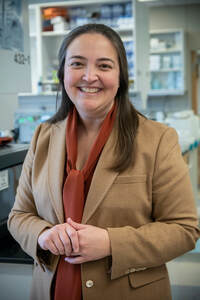
Kathleen H. Burns, M.D., Ph.D.
Principal Investigator
Dr. Burns received her M.D. and Ph.D. in Molecular and Human Genetics from Baylor College of Medicine. She completed a clinical pathology (CP) residency and hematopathology fellowship at Johns Hopkins University School of Medicine, and served as chief resident. Thereafter, Dr. Burns joined the faculty at Johns Hopkins and progressed through the academic ranks to Professor. She served as Vice Chair for Research and Programs in the Pathology Department and Director of the school-wide Physician Scientist Training Program (PSTP). She was recruited to Dana-Farber as Chair of the Department of Pathology in 2020.
Her honors and invited lectures include a Career Award for Medical Scientists from the Burroughs Wellcome Fund, election to the American Society of Clinical Investigation, the Scriver Family Visiting Professorship in Genetics from McGill University, the Daria Haust Lecturer of Pathology at Queen's University, and the Inaugural Thomas Wheeler Lecture at Baylor College of Medicine Department of Pathology.

Wen-Chih Cheng, Ph.D. Senior Scientist
Dr. Cheng received her Ph.D. from the Johns Hopkins University where she studied the role of mitochondrial proteins in programmed cell death pathways. Her postdoctoral research at both Johns Hopkins University and University of Maryland focused on the role of microRNAs in human leukemias and stem cell biology. Prior to joining DFCI, she was a research scientist developing a novel diagnostic technology at Scanogen Inc.
Current research: Wen is leading projects to understand the interplay between the LINE-1 retrotransposon and cancer, especially where LINE-1 biology can be used to develop new cancer diagnostics and therapeutics. She is developing new reagents for ORF1p detection and investigating translational mechanisms regulating ORF2p production.
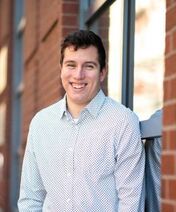
Aidan Burn, Ph.D. Scientist
Dr. Burn received his Ph.D. in Genetics from Tufts University where he studied endogenous retroviruses. His research focused on characterizing the transcriptional activity of HERVs in normal tissue and how that activity varies between different tissues, individuals, and proviruses.
Current research: Aidan is leading our lab’s work on the NIH SMaHT (Somatic Mosaicism across Human Tissue) project : developing new ways to identify LINE-1 insertions and measure LINE-1 methylation to gain insight into how it shapes the genome in tissues.
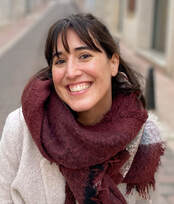
Tatiana Cajuso, Ph.D. Postdoctoral Fellow
Dr. Cajuso received her Ph.D. from the University of Helsinki where she studied colorectal cancer genetics. Her research focused on characterizing somatically-acquired retrotransposon insertions in tumor genomes and identifying associations with clinical and molecular characteristics.
Current research: Tatiana is modeling how LINE-1 expression affects cellular transformation in experimental models of colon cancer initiation. Tatiana's research is supported by the Helen Gurley Brown Presidential Initiative at DFCI.

Jennifer Karlow, Ph.D. Postdoctoral Fellow
Dr. Karlow received her Ph.D. in Computational and Systems Biology at Washington University where she studied how cells undergo epigenetic reprogramming across cancer types and through tumor progression into metastasis.
Current research: Jennifer is studying how LINE-1 expression alters cell genomes and transcriptomes in tumor evolution. Jennifer's work is supported by a fellowship from the American Cancer Society supported by the Cancer Research Racquet.
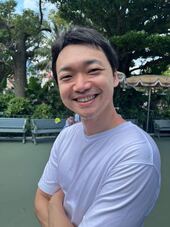
Tomohiro Kitano, D.M.D., Ph.D. Postdoctoral Fellow
Dr. Kitano received his D.M.D. from Nippon Dental University in Japan. He completed his residency in Oral and Maxillofacial Surgery at Gunma University Hospital and received his Ph.D. from Keio University, where he focused on the role of endogenous retroviruses in mouse preimplantation development.
Current research: Tomohiro is researching the landscape of transposable element expression in oral cancers and leukoplakia, and their potential contributions to pathogenesis in these diseases.
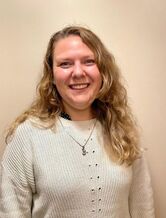
Esin Isik, Ph.D. Postdoctoral Fellow
Dr. Isik received her Ph.D. in Cancer Biology from the University of Zurich where she studied the molecular mechanisms underlying the resolution of transcription-dependent replication stress.
Current research: Esin is investigating LINE-1 retrotransposition as an endogenous source of DNA replication stress and genomic instability. Esin’s work is supported by a Postdoc Mobility fellowship from the Swiss National Science Foundation.

Cheuk-Ting Law, Ph.D. Postdoctoral Fellow
Dr. Law received his Ph.D. at the University of Hong Kong where he investigated chromatin remodelers, transcribed regions, and somatically-acquired LINE-1 insertions in liver cancer. During his graduate studies, he obtained an MPhil degree in Computational Biology at the University of Cambridge.
Current research: Dicky is developing new high-throughput approaches to studying how host factors impact LINE-1 insertions. Dicky's work is supported by a Charles A. King Trust Postdoctoral Research Fellowship.

Carlos Mendez-Dorantes, Ph.D. Postdoctoral Fellow
Dr. Mendez-Dorantes received his Ph.D. at the City of Hope where he focused on determining the mechanisms of chromosomal deletion rearrangements mediated by repetitive DNA elements in mammalian cells.
Current research: Carlos is investigating the contribution of LINE-1 retrotransposition to DNA replication stress, genome instability, and cancer therapeutic response.
Carlos's work is supported by a Postdoctoral Fellowship Award from the Jane Coffin Childs Memorial Fund for Medical Research, and a Forbeck Scholar Award from the Forbeck Research Foundation.
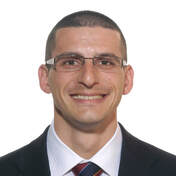
Martin Taylor, M.D., Ph.D. Instructor
Dr. Taylor received his M.D. and Ph.D. from Johns Hopkins University where he studied the role of ghrelin acylation in control of metabolism and its potential as a therapeutic target. He then went on to study the interactions between the LINE-1 transposon and host and the role of LINE-1 in cancer in Boeke and Burns labs. He completed residency in Anatomic Pathology (AP) at Massachusetts General Hospital, where he served as Chief Resident and completed subspecialty training in gastrointestinal (GI) pathology. Thereafter, he began postdoctoral training at the Whitehead Institute / MIT. He joined the faculty of Harvard Medical School as Instructor in Pathology in 2021 and practices clinically as a GI pathologist.
Current research: Marty is studying the structure and function of the LINE-1 ORF2 protein, and the potential utility of LINE-1 ORF1p as a cancer biomarker in tissue and plasma.
Marty's career development and research on mTORC2 activation and substrate recognition in growth factor signaling are supported by a K08 award from NIH.

Audrey Muscato, B.A. Graduate Student
Audrey is a Biological and Biomedical Sciences (BBS) graduate student at Harvard. She received her B.A. in Neuroscience from Bowdoin College. Before starting graduate school, Audrey worked as a Research Associate in the Manguso lab at the Broad Institute, using in vivo CRISPR screens to identify mechanisms of resistance and sensitivity to cancer immunotherapy.
Current research: In the Burns lab, Audrey is interested in how LINE-1 expression alters the immune response to cancer.
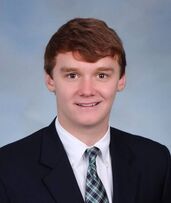
Jack Heaps, B.S. Research Technician
Jack received his B.S. from Davidson College, where he double majored in Biology and English.
Current Research: Jack is interested in the expression of ORF1p and ORF2p, the two retrotransposition-critical proteins encoded by LINE-1, and their roles in cancer biology, with a particular focus on ovarian cancers.

Jupiter Kalinowski, B.A. Research Technician
Jupiter received their B.A. from Bennington College, where they pursued and defended a self-designed course of study focused on microbiology and practical methods in biomedical research.
Current Research: In the Burns lab, Jupiter is working to develop and characterize new experimental models of LINE-1, as well as conducting forward genetic CRISPR screens to identify novel regulators of LINE-1 expression in human cells.
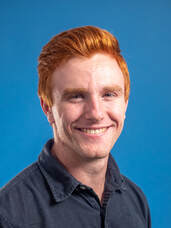
Bryant Miller, B.S. Research Technician
Bryant received his B.S. in Human Biology from Sattler College. During his senior year, he completed a capstone project in Phil Cole's lab investigating the function of conserved residues in NEDD4 E3 Ubiquitin Ligase, an enzyme involved in ubiquitination of key signaling molecules in cancer.
Current Research: Bryant is studying the structure and function of LINE-1 ORF2 protein and its role in cancer biology.
|
Alumni Postdoctoral Fellows Lindsay Payer, Ph.D. Nemanja Rodić, M.D., Ph.D. Chunhong Liu, Ph.D. Ben Smail, Ph.D. Graduate Students Daniel Ardeljan, M.D., Ph.D. Wan Rou Yang, M.D., Ph.D. Cheng Ran (Lisa) Huang, Ph.D. Fernanda Orpinelli Ramos Do Rego Medical Students Maria Kryatova, M.D. John Zampella, M.D. Nicolas Giraldo-Castillo, M.D., Ph.D. |
Undergraduates Ally Moyer Chloe Pacyna JaNiece Walker Lab Technicians Phil Schofield Jared Steranka Peilin Shen William Wu Reema Sharma David Husband, M.D. Anna Schneider, Ph.D. |
HOME | RESEARCH | PEOPLE | PUBLICATIONS | RESOURCES | SUPPORT | JOIN US | CONTACT
©2020 Burns Lab at Dana-Farber Cancer Institute
©2020 Burns Lab at Dana-Farber Cancer Institute
